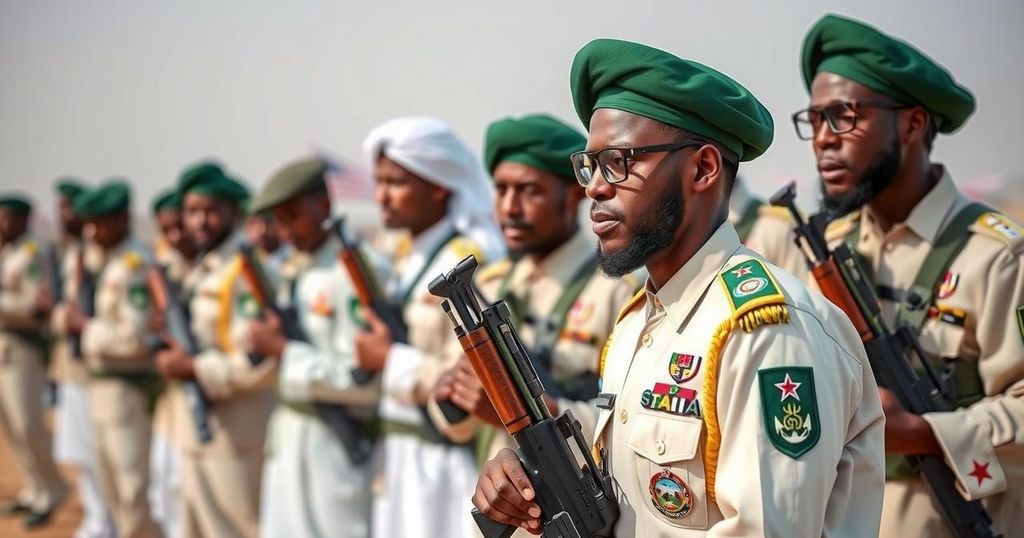UAE Assures U.S. of No Arms Support to Sudan Paramilitaries Amid Tensions

The UAE has assured the U.S. that it will no longer supply arms to Sudan’s paramilitaries amid rising concerns over escalating violence. This pledge allows U.S. lawmakers to withdraw attempts to block a $1.2 billion arms sale to the Gulf nation. Lawmakers will monitor compliance strictly, emphasizing the need for effective crisis resolution in Sudan.
The United Arab Emirates (UAE) has assured the United States that it has ceased all arms transfers to paramilitaries involved in Sudan’s ongoing civil conflict. Addressing concerns raised by U.S. lawmakers, this commitment led to a decision to withdraw efforts to block a significant arms sale worth $1.2 billion to the UAE. Senator Chris Van Hollen revealed a White House letter affirming that the UAE would not transfer weapons to the Rapid Support Forces (RSF) and would refrain from such actions in the future.
In the correspondence, Brett McGurk, the White House coordinator for Middle East policy, articulated, “The UAE has informed the administration that it is not now transferring any weapons to the RSF and will not do so going forward.” Senator Van Hollen indicated that he seeks to leverage arms sales as a means to mitigate the escalating violence in Sudan. He expressed intentions to hold the UAE accountable for its promise, suggesting potential future action should compliance falter.
Representative Sara Jacobs, corresponding with Van Hollen’s efforts, emphasized the importance of consistent monitoring to ensure the UAE’s adherence to its commitments. She noted that without UAE support, the RSF would face diminished capability to sustain its military engagements, potentially leading to increased prospects for negotiation and a ceasefire. The UAE embassy has not provided comment in response to these developments, though the UAE has historically denied supplying arms to the RSF.
Despite previous denials, U.N. experts have indicated that allegations regarding the UAE’s delivery of weapons to the RSF through Chad carry credibility. The pending $1.2 billion arms deal, which includes advanced military systems, is a crucial point of concern among U.S. legislators. The previous administration under President Trump had been more accommodating in arms trade with the UAE, including discussions for advanced weaponry as part of broader diplomatic agreements.
The context of this article centers on the United Arab Emirates’ military engagements and their implications in the broader geopolitical landscape of Sudan and U.S. foreign policy. The civil war in Sudan, which has resulted in mass casualties and displacements, has raised alarms among U.S. lawmakers, particularly concerning the potential complicity of foreign entities in exacerbating the conflict. This situation has generated substantial political pressure on the UAE as lawmakers seek to ensure responsible arms sales and mitigate violence in affected regions. The relationship of the UAE with the Rapid Support Forces is equally scrutinized, as U.S. policy aims to attain a ceasefire and ultimately, a resolution to the violent clashes.
In summary, the UAE’s commitment to halt arms supply to paramilitary forces in Sudan marks a pivotal development amid rising tensions and violence. The assurances presented to U.S. lawmakers reflect an attempt to align its military relations with international expectations while safeguarding strategic arms deals. Continuous observation from legislators underscores the significance of compliance, as the outcome of these efforts could greatly influence the ongoing conflict in Sudan, aiming for a diplomatic solution to the humanitarian crisis.
Original Source: thedefensepost.com








